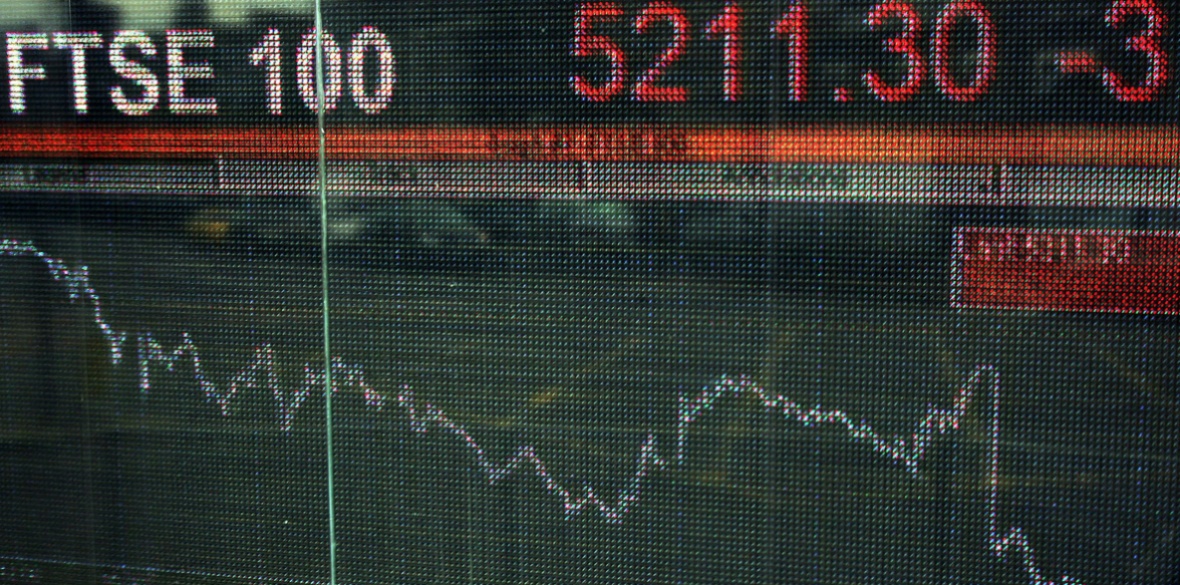This is the last article you can read this month
You can read more article this month
You can read more articles this month
Sorry your limit is up for this month
Reset on:
Please help support the Morning Star by subscribing here
TEN years since the collapse of the Lehman Brothers triggered the near-collapse of the global economy, none of the risk factors that led to the so-called credit crunch have been removed.
In Britain the banks were bailed out with public funds but governments — Gordon Brown’s Labour as well as the subsequent Conservative-Liberal Democrat coalition — remained enthralled by the supposed wisdom of “the market” despite market failure on a colossal and obvious scale.
So however large the public’s apparent stake in the banks we rescued, they remained operated by the same chancers who had just driven the economy off the cliff — and remained geared to reckless speculation for the enrichment of a tiny minority.
It has been remarked often enough that the right seized on the crisis while the left reacted like a rabbit frozen in the headlights.
By this reading David Cameron and Nick Clegg were able to exploit a crash caused by bankers to launch an all-out assault on public services and the welfare state in the name of “austerity.”
Meanwhile, Labour did little to challenge their dishonest narrative about the causes of the crisis and limped into battle under then shadow chancellor Ed Balls’s mantra that austerity was going “too far, too fast” — a line doomed to lead the party to defeat in 2015 since it accepted the premise of the Tory argument, that public spending was too high and needed cutting.
There is a lot of truth to this assessment, and we can certainly celebrate the fact that Labour today is a far more formidable voice for working people.
Shadow chancellor John McDonnell’s resolve that “never again must we allow finance to become the master of the economy rather than its servant” cuts to the heart of the matter — we should have the confidence to build a country that works for its people and the savvy to realise that policy prescriptions from the richest in our society are self-interested, not objective.
This was the point made by Brazil’s Workers Party presidential candidate Fernando Haddad when he noted that stock markets had welcomed the anti-democratic ruling that jailed former president Lula would not be allowed to stand for office, despite being the clear frontrunner in the polls.
Big business doesn’t like government for the people — it likes government for big business. Stock market and currency fluctuation is often presented as evidence that this or that policy is in the “national interest,” but there is no such thing: the interests of the richest are in conflict with the interests of the rest.
A movement which is determined to overhaul the status quo and build a Britain that puts workers first should be wary of heeding the advice of big banks and giant corporations when it comes to what’s best for the economy or what kind of trading relationships we should sign up to.
Jeremy Corbyn’s Labour understands that the grotesque inequality that blights modern Britain is a product of unequal power relations between workers and employers.
Decades of attacks on trade unions and undermining of pay and conditions through outsourcing and privatisation have put bosses in a position to dictate the terms and rates on which we work. That has to end, and Labour and the trade union movement are mobilising to win a new deal for working people.
But there was actually more to Labour’s previous failure to fight Tory austerity than the “rabbit in the headlights” explanation suggests.
From Alistair Darling’s warning of “cuts worse than Thatcher” to the repeated mobilisations by anti-Corbyn MPs to try to derail his leadership, we have seen plenty of evidence that the Labour right acts on behalf of the Establishment, not the labour movement. Understanding this is crucial to preventing Labour’s left programme being frittered away in fruitless compromises with implacable enemies.










